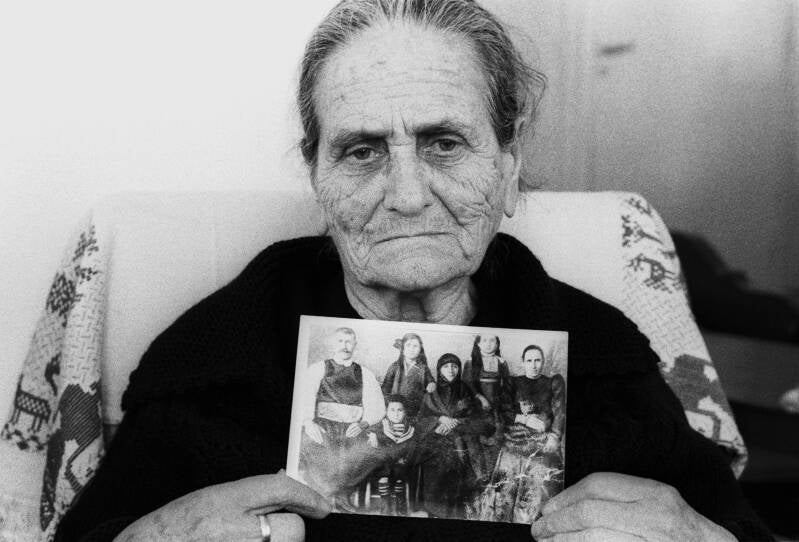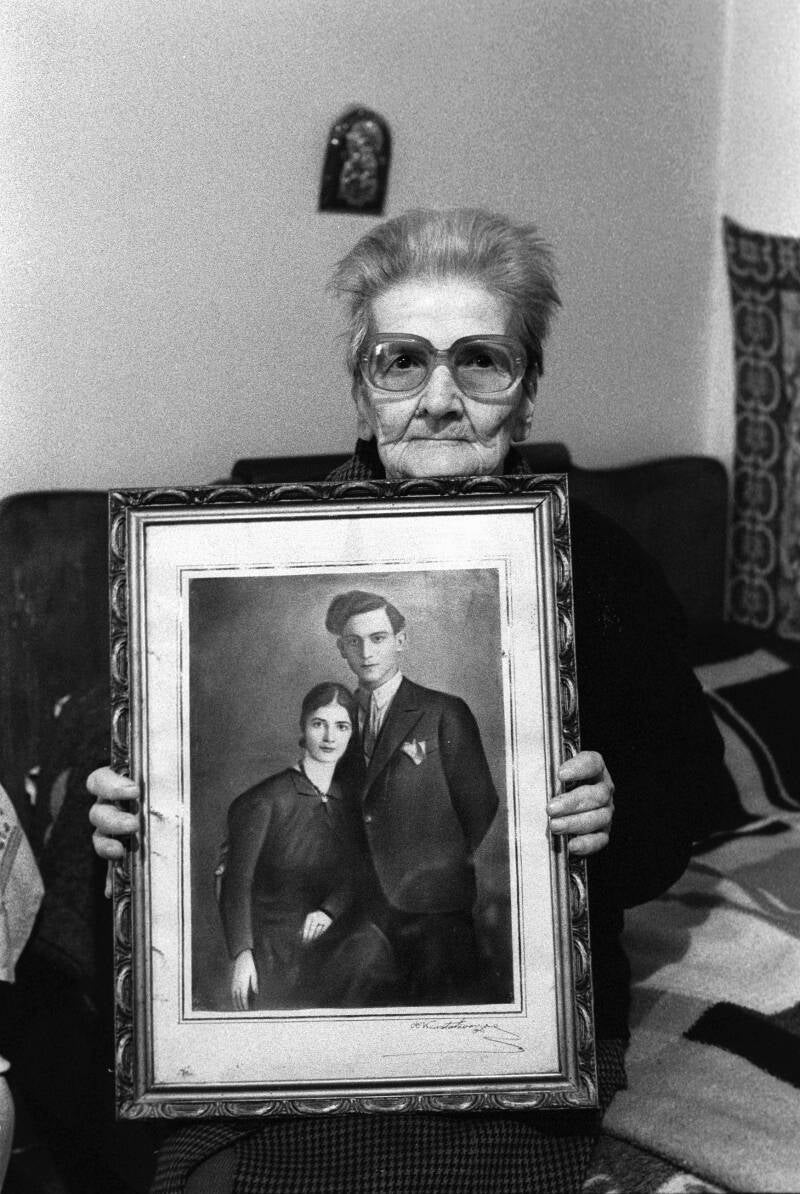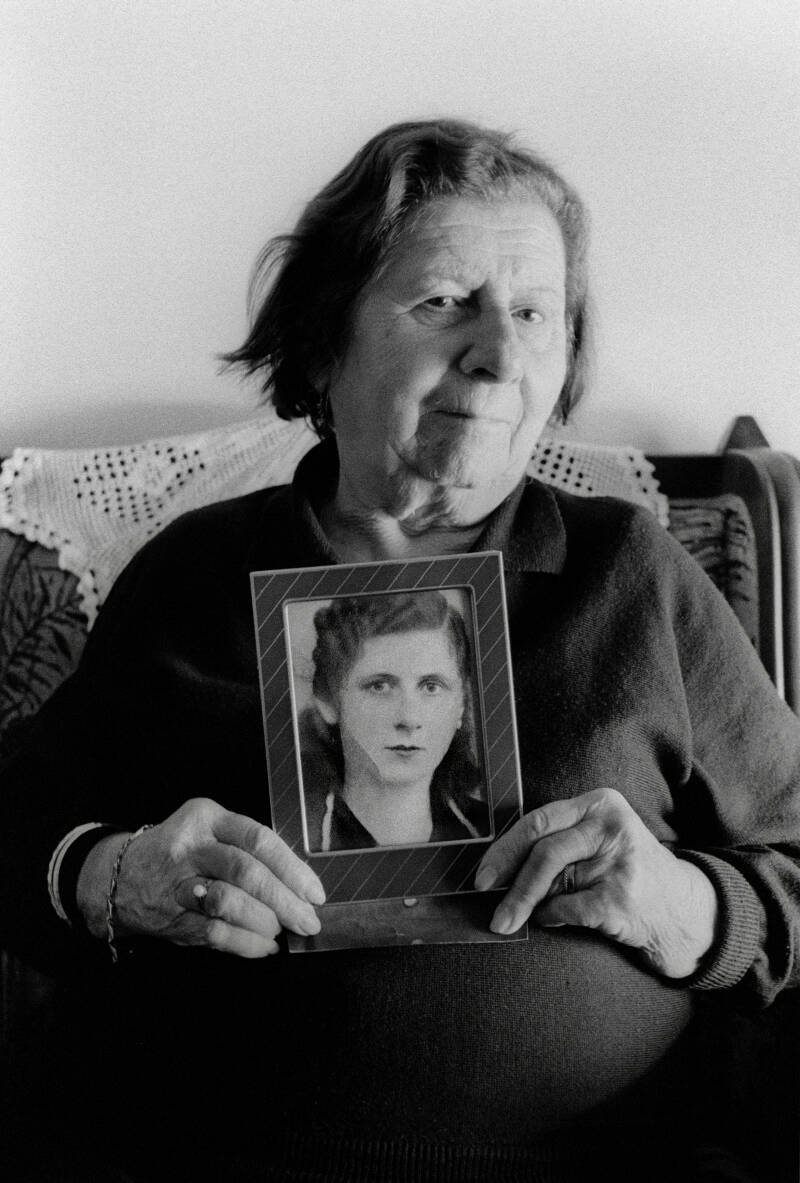Child Refugees, the Victims of the Greco Turkish War. 1919 - 1922.

Refugees: The Grandmothers of Asia Minor.
Greece.
Photography & text by Barbara Dawn Smith.
The 1923 Treaty of Lausanne, that followed the war between Turkey and Greece, caused over a million impoverished Greek Orthodox refugees to pour into Greece from Asia Minor. Ethnicity and religion were key factors in the expulsion. Asia Minor, also known as Anatolia, is located in Turkey. The story of the Asia Minor refugees follows the master narrative of diaspora, refugees forced to abandon homelands.
In 1999, I received a grant from UNHCR, the United Nations High Commissioner for Refugees to document the surviving Asia Minor refugees living in Athens, Greece. I was a young documentary photographer specializing in humanitarian work; refugees, refugee camps, migrants, and minorities within Greece.
The elderly refugee women in the photographs welcomed me into their homes and apartments, sharing Greek coffee, sweets, and stories of escape with me. Many of the women whom I met, now grandmothers, arrived in Greece as refugee children, some as babies. In 2023, it is one hundred years since their exile.
The photographs and the stories are relevant to what is presently happening in the world.
Evanthia. (above)
I was born in 1917 in Asia Minor. We escaped in 1922. My mother had three children. She found a rope and fastened it to her bag. One son was tied to the left and the other to the right. She held me in her arms. She was no more than twenty-five years old. My father had died. We walked towards the beach, I sat down. I could not walk anymore. My older brother was twelve. He could understand the situation.
He said; "Mother, will we leave my sister here?' She could not speak. My brother's friend came and carried me to the beach. When we reached the ship, a woman said to my mother; "Charikleia, you are the happiest woman in the world because you have all of your children." Many women lost their children or the children were lost. When I grew up, I asked my mother what she would have done when I sat down. She said, "I do not know, daughter. If you want to listen to the truth, I do not know."

Sofia.
When I was six months old in my mother's belly, I cried. My grandmother and mother heard the cries. Grandmother quickly cast a wicked curse and said "Eat your head" She inferred that I should die. My mother burst into tears, crying for the whole day. When my father returned home from work he asked why my mother was upset. She said; "The child inside of me cried and I heard it. Your mother said; "eat your head" to the baby." In the next days, my grandmother and father went to visit Saint Arsenio's. He was my uncle. He felt something serious had happened and came to our house. My grandmother explained, the child had cried, I heard it. We have only one son. That is why I said "eat your head". Uncle Paisios said; "The baby cried for all of the people of Asia Minor." He raised his hands up and prayed. He understood something bad would happen. He said; "Take care, the children will get married and acquire land. We will not buy any land from here. Neither will we make houses for our children here because the time will come in five, ten years or seventeen years when we will go to Greece." When I was born he said; "Since the child is enlightened. I will baptize her and name her Sophia. Sophia means wisdom”.

Filio.
Can you imagine, can you think of yourself, your people, your parents, and your house, home. Everything to be destroyed.
It was like an explosion of a volcano where the lava flow destroyed everything. This came to my mind, and I say from now on for me: nothing can, no one can describe, or no lips can tell what I had seen. It has been seventy-six years since that incident, half my mind is there, my family, is there and the life I had there. When the night comes, this is Asia Minor night for me. I think of the good days that I had there and myself as a young girl. When I want to sleep, I think again of all of the good times and it comes to my eyes as a movie.

Stasa.
My grandmother came to Greece at sixty years of age. She had lost all of her money and land in Asia Minor. She was a widow. She used to say; "I had land, I had money, now, I am a beggar."
During the last moments in her house, she packed a bag full of silver. He father had owned a jewelry shop specializing in silver plates. She prepared the luggage and carried it wherever she went. At the end, she could no longer lift the heavy bag. She pulled out two silver pieces for sweets, twelve small silver spoons, and a Chinese silk scarf. The scarf was very precious. She pulled out other smaller pieces of jewelry, too. She had no money because she collected a yearly rent. Grandmother used to take me with her when we went to her father's shop in Kaisariani. She rented it to a man that sold spices and herbs. He gave her a small bag of gold liras, once a year. She would lift her skirt and place the sack inside the inner dress pocket. Then we would travel home together, hand in hand.

Maria.
I was born in 1914 in Sivrisari in Asia Minor. On August of 1922, a ship came to my village to pick up charcoal. We were at the vineyards, so we ran for the boat. We boarded the boat and they left us off on the island of Samos. We stayed on Samos for one month. Then we came to Athens where I had an Uncle that had been living in Athens for many years. He had his own house and we stayed there. All together, we were my brother, my sister, my mother, and myself. My mother worked washing the soldier's uniforms. They had large cooking pots in the kitchen and she would bring us a little food to eat.

Anastasia.
I was born in 1915 in Koulkoutza, on the outskirts of Smyrna. My father was a tobacco merchant. My brother, Dimitris, was killed by the Turks. Our house was set on fire. My grandmother was blind, and so, she died in the fire. My mother rescued the children. My mother took a piece of fabric and turned it into a belt. She tied us children together. She would yell; "Stasia, Aristo, Chryssa, Niko, take care so we do not get lost." We went to the sea. The Turks started the slaughter. They cut off fingers to get rings. They stole the jewelry. I was wearing a ring that my mother had given to me. A Turk said to me; "Give it to me, because whole families with children have been thrown into the sea, it is better to be drowned then slaughtered." We were lucky. We were saved. We boarded the boat and we reached Piraeus, the main port of Athens. We were full of lice. We could gather them with the palms of our hands. My mother fell ill of typhoid.

Rachel.
We disembarked in Piraeus, the main port to Athens. In the cold winter of 1925, we were all together in a four-meter by four-meter wooden shack. The conditions were terrible. We brought water from large tanks. In the Winter, we lit fires. Generally, I have no complaints about the behavior of the people in Greece, but the situation was very bad. There was poverty in those years. They had pains because of the uprooting and the refugee problem. It was difficult to return to the homeland, Greece.
In the beginning we stayed without paying rent. Later we moved to a three hundred square meter plot of land. We received refugee compensation and we had some jewelry. So, we built a house.

Angeliki.
I was born in Smyrna in 1916. I was baptized in Asia Minor by a very rich godmother. She wanted me to have the name of her mother, so my name is Kokoneio. When we came to Greece my aunts gave me the name Kikitsa or Angeliki.
During the slaughter, the Turks caught my father. My mother took me to the hospital. There my aunts put us in their own car and we went to the beach. We stepped over clothes and many possessions left behind by others. My Aunt told my mother to take a blanket to cover me on the boat. When my mother reached for a blanket, a Turk hit her on the hand. So, she left the blanket. Later when the Turks could not see, my mother took a blanket with fringes. My aunts found some seats inside on the boat. My mother and I were on the deck. She spread out half of the blanket on the deck with the other half, she covered me. We reached Piraeus.

Eleni.
I was born in Constantinople in 1909. My family had six children. My father was a cook. He went to houses to cook meals for people. In Constantinople, we were good. We did not have any problems. When we arrived in Greece, we had many problems. And, we had no one to help us.
Thanks for reading.